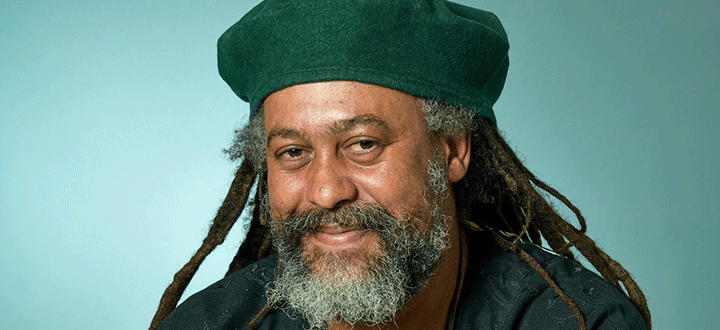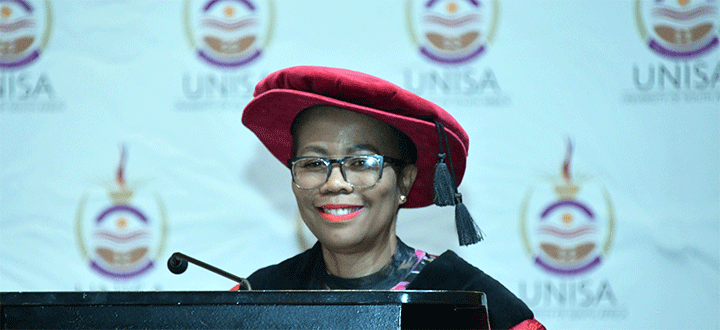College of College of Graduate Studies
Renewing African higher education with accountability and vision
There is a need to align the mission of higher education in Africa with the significant changes in political economies. This was the view of Prof Tade Akin Aina, a senior programme director at the Carnegie Corporation of New York, during the recent 2024 Thandika Mkandawire Memorial Lecture.

Prof Tade Akin Aina, Carnegie Corporation, New York. delivering the keynote address
Jointly organised by Unisa’s SARChI Chair in Social Policy, the Council for Development of Social Science Research in Africa (CODESRIA) and the United Nations Research Institute for Social Development (UNRISD), the online lecture was held for the third time on 10 October to honour the memory of Prof Thandika Mkandawire, a pioneer and a visionary leader who helped to shape higher education in Africa.
Under the theme "Vision, Values, and Value", Aina called for a civil society that demands accountability, transparency and new forms of organising, especially regarding the use of resources in state-owned higher education institutions.
He highlighted the opportunity to transform higher education through a values driven reconstruction and reimagination of university missions. He noted the absence of a vision that will imagine alternative states. Such new imaginings need to emanate from the pioneers and innovators of African higher education.

Prof Jimi Adesina, incumbent of the SARChI Chair in Social Policy, Unisa
Reflecting on the legacy of Mkandawire, who viewed higher education as a tool for emancipation from poverty, ignorance and disease, Aina stressed the importance of restoring the values and principles of renewal, service and giving back. He argued that higher education is a contested field, imbued with skills, status, privileges and compensation, and called for a shift from resource allocation to visionary transformation for the collective good.
Addressing the challenges, Aina warned against the prioritisation of military spending, prestigious infrastructure projects and personal luxury over education and gender equity. He underscored the risks of authoritarian politics, denial of science and the struggle for control over life-determining technologies, instead advocating for local investment to maintain autonomy and self-determination in higher education.
He commended transformative leaders in Africa for their innovative approaches, citing networks like ECP, the Science Foundation for Africa, and the African Academy of Science, and highlighted the successes of institutions such as the African Leadership University. These successes are driven mainly by external funding, and Aina called for the increased mobilisation of internal resources. One such resource is Africa’s high-net-worth individuals who are beginning to establish foundations and even higher education institutions.
With new modes of delivery, centres of excellence and multidisciplinary collaborations, higher education in Africa is witnessing unprecedented advancements. Aina concluded by urging investments in new and existing institutions to foster a visionary and accountable higher education landscape in Africa.
* By Hanli Wolhuter, Communication and Marketing Specialist, College of Graduate Studies
Publish date: 2024-11-11 00:00:00.0


 President Ramaphosa appoints Unisan to the CRL Rights Commission
President Ramaphosa appoints Unisan to the CRL Rights Commission
 Unisa VC appointed for second term, looks back on the 2024 academic year
Unisa VC appointed for second term, looks back on the 2024 academic year
 From passion to profession: Sonto Mthwane's journey in tourism management
From passion to profession: Sonto Mthwane's journey in tourism management
 Uniting for open knowledge
Uniting for open knowledge
 Unisa to partner with Government to tackle water, energy and infrastructure challenges
Unisa to partner with Government to tackle water, energy and infrastructure challenges